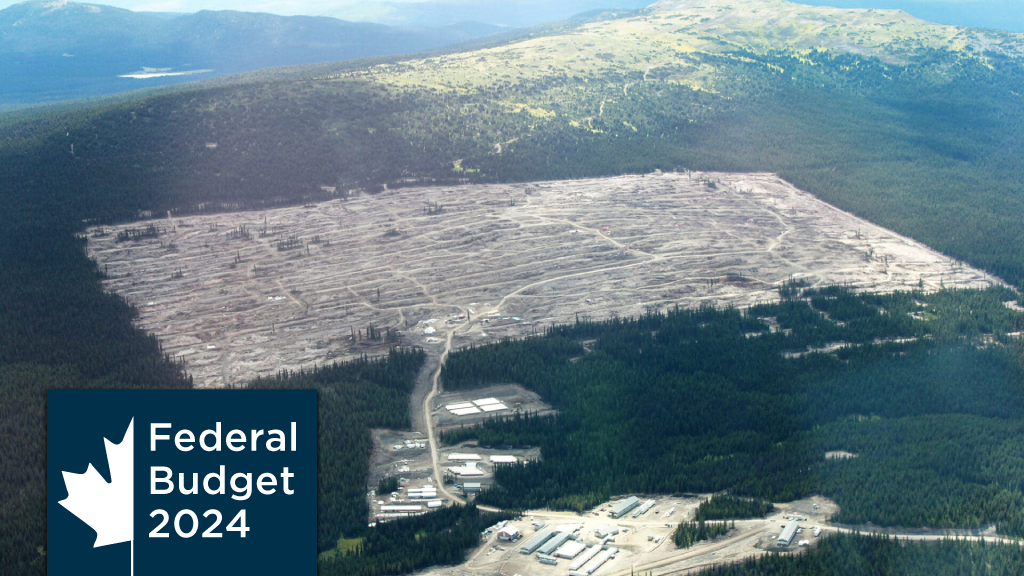Construction stakeholders found lots to like in the Justin Trudeau governmentтАЩs latest budget but several expressed concern over what they perceived as gaps, misfires and missed opportunities.
The and the (ACEC) suggested Budget 2024 missed the mark by focusing extensively on housing and related issues to the exclusion of important long-range infrastructure planning.
The multiple new housing supports mean the construction sector will be busy for the near and medium terms, others said, but the lack of fiscal restraint and the expansion of capital gains taxes are causes of concern.
Finance Minister Chrystia Freeland delivered, subtitled Fairness for Every Generation, in the House of Commons on April 16. Addressing ║┌┴╧│╘╣╧═ЇтАЩs housing crisis is the governmentтАЩs top priority Freeland said in outlining dozens of new measures to support the creation of 3.87 million new homes by 2031.
The expanded capital gains tax will raise $19.3 billion over the next five years, including $10.5 billion from companies. Businesses will now pay income tax on two-thirds of their capital gains, up from one-half.
тАЬYou can anticipate thereтАЩs going to certainly be some concerns from the business community,тАЭ said COO Ken Lancastle on the new tax measure. тАЬCapital gains, particularly in small businesses that are family-owned, are going to be impacted, but I think we need to dive into that a little bit more.тАЭ
More vision needed
The pledges of billions to be spent on housing and infrastructure to support housing mean there will be lots of construction activity on the horizon, Lancastle said.
тАЬI think you can anticipateтАжthe construction industry across ║┌┴╧│╘╣╧═Ї is going to play a fairly prominent role in the years ahead,тАЭ he remarked.
Still, Lancastle said, the government has not made it clear how the myriad housing programs and workforce development programs will be implemented тАУ there does not seem to be a vision or focus, he said.
ItтАЩs important that тАЬindustry stakeholder groups are at the table to work with the government on the implementation.тАЭ
CCA president Mary Van Buren also mentioned a lack of vision.
тАЬBudget 2024 sets a bold objective to help Canadians buy homes but misses the mark on delivering sufficient investment and a plan to ensure a steady flow of funds to address our nationтАЩs infrastructure challenges,тАЭ she said.
тАЬWhile we acknowledge some initiatives, such as funding for creating affordable apartments, training and recruiting more workers, and upgrading water and wastewater systems, the conditions attached and lack of strategic vision are concerning.тАЭ
ACEC CEO John Gamble had stressed the importance of progress on the National Infrastructure Assessment (NIA) and a replacement or extension for the Investing in ║┌┴╧│╘╣╧═Ї Infrastructure Program (ICIP) in the associationтАЩs pre-budget submission. The ACECтАЩs post-budget analysis noted there was no discussion of the successor to the ICIP in the budget.
тАЬWhile other announcements included in this budget will supplement infrastructure funding, an ICIP successor program is essential to ensuring continuity in ║┌┴╧│╘╣╧═ЇтАЩs infrastructure maintenance and asset management,тАЭ asserted the statement.
As for the NIA, precise timing on its launch was absent from the budget but the ACEC said it will тАЬcontinue meeting with the National Infrastructure Assessment Secretariat Directorate to highlight the importance of a comprehensive NIA.тАЭ
тАШNot fiscally responsibleтАЩ
Paul de Jong, president of the stated the PCA was тАЬdisappointed by another big spend budget, that provides little in the way of new infrastructure dollars, and requires Canadians to spend billions annually on debt servicing costs. This is not a fiscally responsible path forward.тАЭ
De Jong also criticized the governmentтАЩs proposed plans to amend the Impact Assessment Act after parts were declared unconstitutional by the Supreme Court. The act requires a major overhaul, he said, with approvals providing more certainty to proponents and not subject to political interference.
║┌┴╧│╘╣╧═ЇтАЩs Building Trades Unions executive director Sean Strickland highlighted new or stable funding for the Canadian Apprenticeship Strategy, Sustainable Jobs Training Fund and Skilled Trades Awareness and Readiness Program along with continued investments in nuclear development and net-zero technology investments as positives in the budget.
тАЬThis will strengthen our workforce and ensure ║┌┴╧│╘╣╧═Ї has the support it needs as we forge ahead building new homes and transitioning our nationтАЩs economy to a net-zero future,тАЭ he commented.
Indigenous loans to be enabled
The budget also introduces a proposal to address what Strickland called the тАЬmisclassification of workersтАЭ as independent contractors by some employers to avoid payroll taxes and benefits remittances.
The reforms will тАЬbring workers out of the underground economy,тАЭ he said.
The said it welcomed the news of further details on the Clean Electricity Investment Tax Credit and looks forward to the enabling legislation being tabled. The association also praised the tabling of enabling legislation for the Indigenous Loan Guarantee Program.
тАЬThis program is a gamechanger that will boost opportunities for Indigenous communities and companies to build the renewable energy and energy storage projects that ║┌┴╧│╘╣╧═Ї needs,тАЭ said CanREA CEO Vittoria Bellissimo.┬а
Check out our 2024 Federal Budget: Construction Coverage Hub for more articles and analysis.
Follow the author on X/Twitter .












Recent Comments
comments for this post are closed